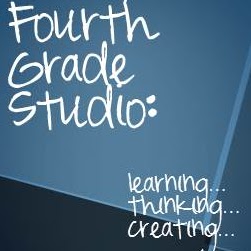As we started to dig into our division studies, it became painfully clear to me that some of my students had some major gaps in their understanding of multiplication and division concepts. I decided to put the main unit on hold for this group and wanted to design some activities to help bolster their understanding of grouping and sharing.
To begin, I wanted students to really understand the idea that multiplication and division are so linked that we can almost use them interchangeably in our minds—but that our math language needed to reflect what we are doing. What do I mean? We often teach students what many call “turn around” facts. We tell them that 4 x 3 is the same as 3 x 4. But is it? Is four boxes of 3 pies the same as 3 boxes of 4 pies? No it isn’t. They both represent 12 pies—but the situation is totally different. I decided to play with this a little and made up a version of a grouping game I have used for years. Here’s how we started.
I told the students that they were going to be a “herd” of animals today and that I had researched a whole bunch of animals that traveled in herds. I also let them know that when animals who travel in herds are threatened, they sometimes break into smaller groups to protect each other. I told them that I was going to break them into smaller groups today and then we would write the mathematical equations that we discovered in the process. We counted our “herd” and found that we had 20 animals this day.
I taped off an area of one of our empty classrooms (this would have been fun to do outside as well with a chalked off area) to have as our “pen” for extra animals that couldn’t find a group. I also put some animal “tokens” in the pen so that each child who ended up there took a token—and the token was a “get out of the pen free” card so the same students didn’t always up there!
So here’s how the game worked…
First of all, I called out a type of animal (buffalo, giraffes, zebras, wild boars, cows, bison, elephants…) and the size of the group I wanted them to form. For example…“Elephants—form groups of 5!”
The students scampered to make their groups and I asked for help writing the equation on the board.
20 ÷ 5 = 4
and then I restated….“So I just formed four groups of 5?
I wrote 4 x 5 = 20.
We tried again. “Giraffes—form groups of 2!”
Students quickly paired up and we wrote the equations.
20 ÷ 2 = 10
10 x 2 = 20
The students were getting the hang of the game so I decided to move to the next steps. “Buffalo—form groups of 8.”
The students struggled a bit to make their groups—but eventually four of the leftover buffalo found their way to the holding pen. You can see their
“tokens” so they wouldn’t have to be in the pen again! We worked
to write the equations this time.
20 ÷ 8 = 2 groups with 4 remaining
(2 x 8) + 4 = 20
We continued with several more rounds until I could see that the students were getting the hang of it! We wrote down some of our rounds on the board (when I remembered!) and then I asked them to try to do some mental math to determine what would happen if I asked them to make groups of 9…then groups of 6. They did a great job! I knew that I had given my entire class enough to go on—and I was ready to continue the work with my more struggling students back in the classroom.
While my other students were working on some problem solving, I pulled my intervention kiddos to continue with our “herding” activities. I made some cute little animal tokens (the ones we used in the game) to use as counters and we started working to tell herding stories. I wanted to see if they could apply the skills of the game a little more independently and could make the shift to recording their math equations on their own. Much like the game, I told herding stories but this time gave each student a baggies of animals—and I was able to change the number of animals in the herd at will. So the questions began…
“You have a herd of 12 animals. Divide them into 3 groups—what do you get?”
“You have a herd of 16 animals. Divide them into 8 groups—what do you get?”
“You have a herd of 20 elephants. Divide them into 5 groups—what do you get?”
We did several rounds where the groups worked out with no remainders, but then they BEGGED for remainders! Students started really seeing the connection between their multiplication facts and the division problems! We kept track on the recording sheet to make sure that we were getting the practice with the math language and grouping concepts. We kept going for another few rounds, and I gave each one of them a baggie of critters to teach their families about “herds” at home!
I knew I wanted to have some additional practice activities, so I wrote up this activity, made some fun animal "tokens"/counters, added in some word problems and bare number problems and put it out there as a product--but as you see, this would be SUPER easy to do on your own! Get creative and have fun building math understanding with your students!
Meg
or find me on Twitter at @FourthGrStudio
or Instagram @Fourthgradestudio
























































